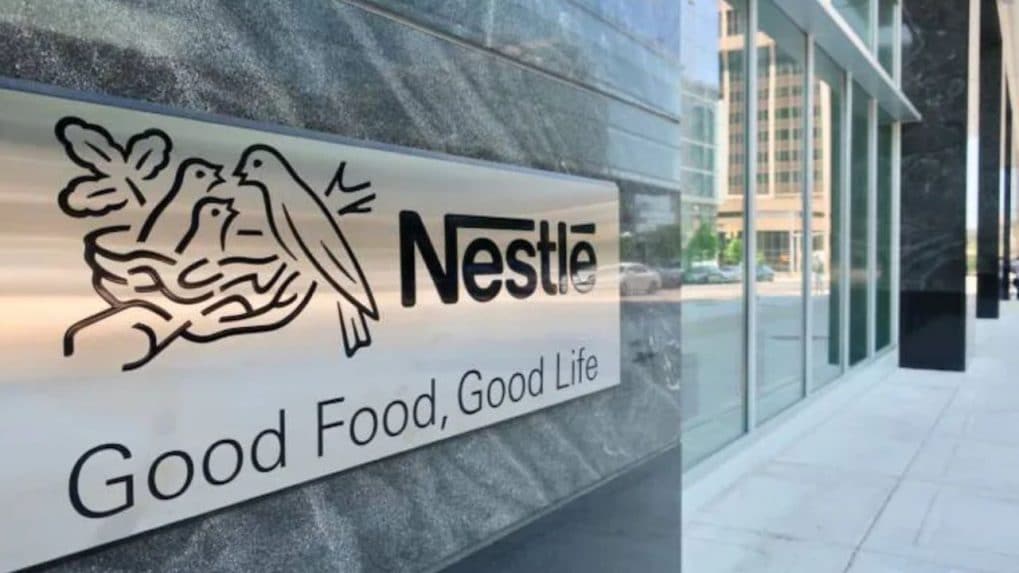Nestlé India cuts ad spend to Rs965.86 crore in FY25, but doubles down on brand building
After slashing ad spend in FY2025, Nestlé India is doubling down on innovation, digital marketing, and premiumisation to fuel its post-Maggi transformation and future growth.
ADVERTISEMENT
Despite a steep 25 percent drop in advertising and promotional expenses in fiscal year 2025, Nestlé India is signaling no retreat from its marketing ambitions. The consumer goods giant spent ₹965.86 crore, down from ₹1,287.68 crore the previous year, according to its latest annual report.
Read more: Nestlé India's incoming chairman Manish Tiwary's annual pay soars to Rs 3 crore in FY25
Nestlé India's profit dropped by 15.7% to Rs 3,314 crore in FY25. In the previous fiscal, the FMCG giant reported a profit of Rs 3,932 crore. The company's sales also slumped from Rs 24,275 crore in FY24 to Rs 20,077 crore in FY25.
Yet, the company maintains it will continue to make significant investments in brand-building as it seeks to cement consumer trust and fuel product innovation.
The Swiss multinational's India arm, best known for household staples like Maggi noodles and KitKat, used the year to recalibrate its marketing playbook, placing a sharper focus on digital storytelling, strategic partnerships and e-commerce-led campaigns.
In a year that marked the 50th anniversary of Maggi, Nestlé launched an emotionally resonant campaign titled “Rishtey Maangein Bas 2 Minute,” tapping into nostalgia while also introducing Maggi Besan Noodles as part of its push into product innovation. The Prepared Dishes and Cooking Aids category, dominated by Maggi, now accounts for over 31 percent of total sales, the company stated.
Nestlé’s confectionery division also hit new highs. KitKat posted double-digit growth on the back of its “Break Pe Sirf Break” campaign, solidifying India as the brand’s largest market globally. Digital-first strategies and premium positioning paid off, as did targeted efforts in e-commerce. Meanwhile, NESCAFÉ expanded its foothold among younger consumers, buoyed by fresh launches like ICE ROAST and social media-driven storytelling.
The company also leaned into out-of-home consumption trends, striking co-branded partnerships with retail players such as Chai Point, Pizza Hut and Mad Over Donuts, efforts that executives say are key to capturing new consumption occasions and audiences.
Behind these brand moves is a sweeping digital transformation. Tools like RACE, Nestlé’s AI-powered retail execution platform, and the emergence of Quick Commerce, now making up 45 percent of its e-commerce business, have reshaped how the company engages with consumers. E-commerce itself now contributes 8.6 percent of total sales.
Outgoing Chairman and Managing Director Suresh Narayanan, who has helmed Nestlé India since the 2015 Maggi crisis, reflected on the company’s evolution. “We no longer fear failure,” he said. “We prioritised speed and significantly increased our innovation pace.” Narayanan emphasized that technology is a key driver for Nestle's sales and distribution. "Today using data analytics and with the benefit of AI, we move from information-based platforms onto predictive platforms," the company chairman mentioned in the annual report.
The transformation under Narayanan’s leadership has been profound. Since 2015, Nestlé India's annual turnover has more than doubled, rising from ₹8,100 crore to ₹20,100 crore in FY2025. A crisis that once shook the company’s foundations became a catalyst for reinvention. Over the past decade, Nestlé has introduced more than 150 new products, which now contribute 7 percent of total sales. Confectionery and KitKat sales have more than tripled and doubled, respectively.
The company has also ramped up capital expenditure, investing 10 percent of its sales back into infrastructure in FY2025, up from just 1.8 percent in 2015. New manufacturing facilities in Gujarat and Odisha are part of this broader commitment to “Make in India.”
Looking ahead, Nestlé is preparing for its next chapter. The company named Manish Tiwary as its incoming Managing Director, effective August 1, 2025, signaling a carefully planned leadership transition as it builds on a decade of recovery, reinvention, and renewed consumer connection.


